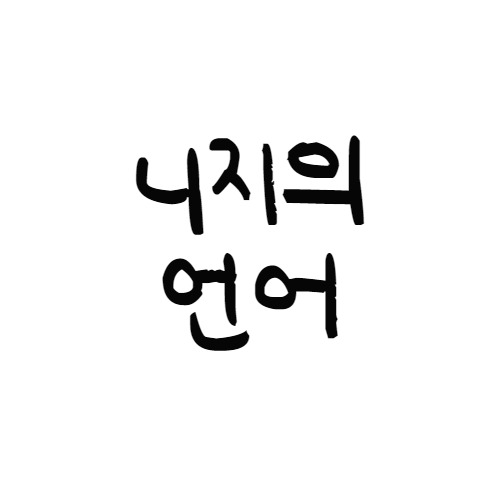니지의 언어
Korean grammar :: Difference between 바꾸다 and 달라지다 (to change) 본문
Korean grammar :: Difference between 바꾸다 and 달라지다 (to change)
하니지 2023. 5. 29. 16:40
Understanding the Difference: 바꾸다 and 달라지다 in Korean
Learning a new language involves unraveling its intricate web of vocabulary and grammar. Korean, with its unique
linguistic structure, offers a fascinating journey of discovery. In this blog post, we'll delve into the nuances of two
commonly used verbs: 바꾸다 (bakkuda) and 달라지다 (dallajida).
While both verbs relate to changes, they differ in terms of agency and focus. By understanding their
distinctions, you'll gain a deeper appreciation of the Korean language and communicate more
accurately.
바꾸다 (Bakkuda):
The verb 바꾸다 translates to "to change" or "to replace" in English. It denotes an action taken by someone intentionally or actively to alter or substitute something.
바꾸다 implies agency, indicating that a subject is actively involved in the process of change. Here are a few examples to illustrate its usage:
"옷을 바꾸다" (Oseul bakkuda) - "To change clothes"
"약을 바꾸다" (Yageul bakkuda) - "To change medication"
"방식을 바꾸다" (Bangsigeul bakkuda) - "To change the method/approach"
In each of these examples, the subject is actively making a conscious decision to modify or replace
something according to their own will or intention.
달라지다 (Dallajida):
On the other hand, the verb 달라지다 means "to change" or "to become different" in English.
Unlike 바꾸다, 달라지다 emphasizes the result or outcome of a change rather than the intentional action itself. It indicates a passive or spontaneous change that occurs without the direct involvement of the subject. Here are some examples:
"날씨가 달라졌어요." (Nalssiga dallajyeosseoyo) - "The weather has changed."
"상황이 달라졌어요." (Sanghwangi dallajyeosseoyo) - "The situation has changed."
"나의 생각이 달라졌어요." (Naui saenggagi dallajyeosseoyo) - "My thoughts have changed."
In these instances, the subjects (weather, situation, thoughts) undergo a change, but it is not due to a
deliberate action by a specific individual. The change is perceived as a natural or spontaneous
occurrence.
Understanding the Context:
To grasp the distinction between 바꾸다 and 달라지다 fully, it's essential to consider the context and the nature of the change being described. If the focus is on an intentional, active change initiated by someone, 바꾸다 is the appropriate verb. On the other hand, if the emphasis is on the resulting change that occurs passively or spontaneously, 달라지다 is the preferred verb.
Conclusion:
Exploring the subtle differences between 바꾸다 and 달라지다 allows us to grasp the intricacies of the Korean language. While both verbs involve changes, 바꾸다 emphasizes an intentional action initiated by a subject, while
달라지다 highlights the passive or natural outcome of a change. Understanding these distinctions will enhance your ability to express yourself accurately in Korean, enabling deeper communication and cultural exchange. So, embrace these verbs, practice their usage, and unlock a new level of fluency in the Korean language.
'한국어 > Korean Grammars & Vocabs' 카테고리의 다른 글
| Korean Vocabulary :: Difference Between 착하다 and 친절하다 ('be kind' in Korean) (0) | 2023.06.03 |
|---|---|
| Korean Grammar :: Difference between 일 and 날 ('Day' in Korean) (0) | 2023.06.01 |
| Korean Expression :: 그랬으면 좋겠어요 meaning ('Hopefully' in Korean) (0) | 2023.05.27 |
| Easy Korean :: Difference between 살다 and 생활하다 (to live) (0) | 2023.05.18 |
| Easy Korean :: Difference between 추억 and 기억 (memory) (1) | 2023.05.16 |




